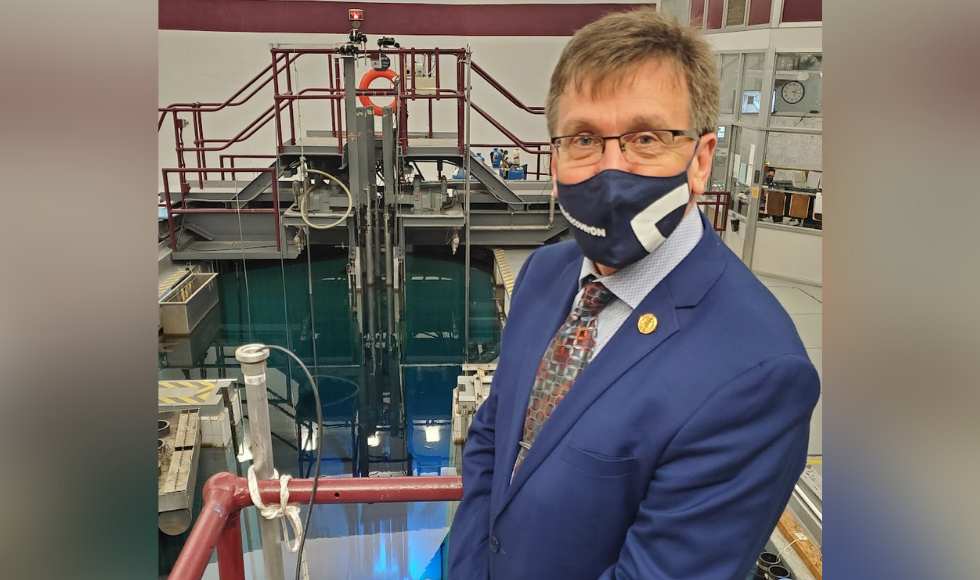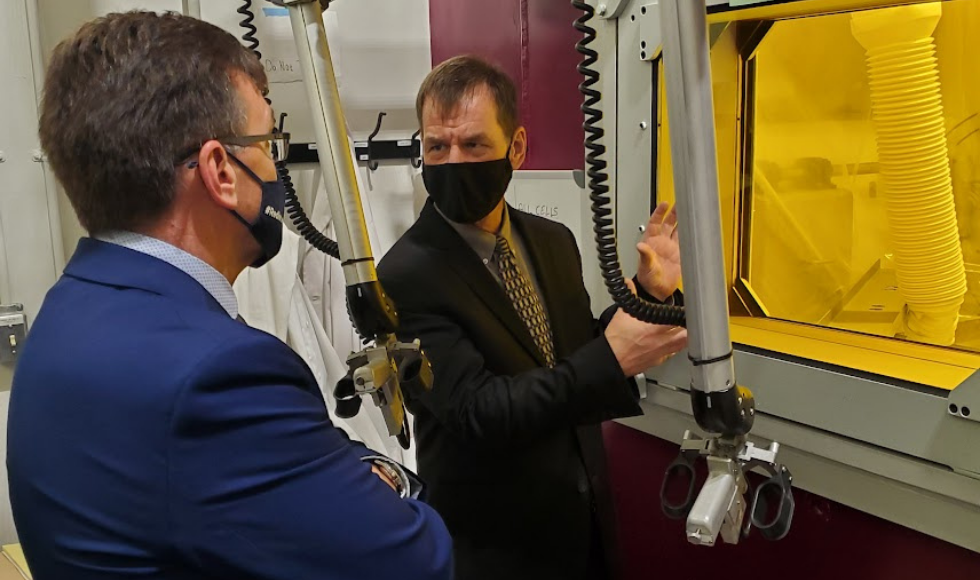MPP Bill Walker visits McMaster Nuclear Reactor

The provincial member for Bruce-Grey-Owen Sound had a first-hand view of Canada’s most powerful nuclear research reactor, which has been recognized as a global leader in medical isotope production. (Photo by Nick Switalski/McMaster University)
Only a few months after he called for Ontario’s government to recognize the McMaster Nuclear Reactor’s world-leading role as a supplier of medical isotopes, MPP Bill Walker toured the reactor and got a first-hand overview of its research and production activities.
McMaster’s reactor produces two medical isotopes used for diagnoses and cancer treatments: iodine-125 and holmium-166. It supplies 60 per cent of the world’s supply of iodine-125, used to treat prostate and other cancers.
The reactor’s production drives cancer treatment for more than 70,000 patients every year and ensures that Ontarians have access to advanced cancer therapies.
Last October, Walker, the Member of Provincial Parliament for Bruce-Grey-Owen Sound, introduced a motion at Queen’s Park, calling upon the government to recognize Ontario as a global leader in the supply of medical isotopes for cancer treatments. His motion passed unanimously.
Dave Tucker, McMaster’s Assistant Vice-President Research, Nuclear, saluted Walker for raising the issue and encouraging the Ontario legislature to formally recognize its nuclear assets and role in global health care.
“Ontario’s capacity – significantly enhanced by McMaster’s talent and infrastructure – is vital to capturing the healthcare and economic benefits for this rapidly emerging field,” Tucker said.
“McMaster has a track record of excellence in isotope research and production, and we’re positioned to advance our work to benefit the health and well-being of society.”
The 5-megawatt reactor is Canada’s only major research reactor, serving as a source of neutrons for medical isotope production, and is the only research reactor in the world that does not rely on government funding to operate.

The university also operates a modern cyclotron — a compact particle accelerator that bombards targets with protons to make medical isotopes. These form critical parts of the only comprehensive facility in the country equipped to design, develop, and commercialize new reactor-based medical isotope technologies.
McMaster also houses the Centre for Probe Development and Commercialization (CPDC), and CPDC spin-off, Fusion Pharmaceuticals, which is headquartered at McMaster Innovation Park.


